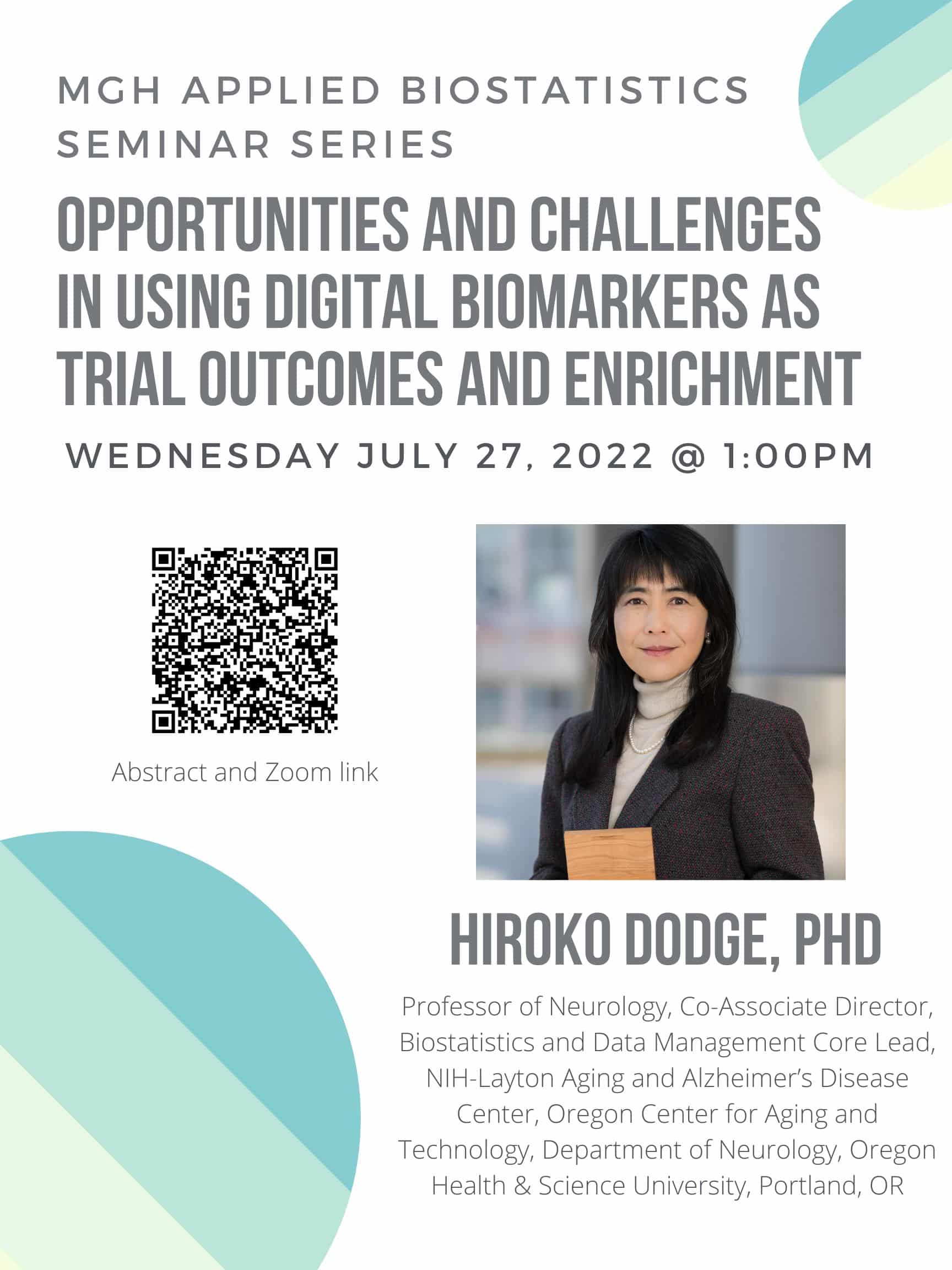Please join us for the next installment of the MGH Biostatistics Applied Biostatistics Seminar Series, a new seminar series designed to introduce researchers to intermediate topics that are highly relevant to clinical biostatistical research. Presenters will introduce us to their area of expertise and motivate the use of these methods with concrete clinical examples.
Opportunities and Challenges in Using Digital Biomarkers as Trial Outcomes and Enrichment
Wednesday July 27, 2022, 1:00-2:00pm
Virtual event: https://partners.zoom.us/j/84562510027
Speaker: Hiroko Dodge, PhD. Professor of Neurology, Co-Associate Director, Biostatistics and Data Management Core Lead, NIH-Layton Aging and Alzheimer’s Disease Center, Oregon Center for Aging and Technology, Department of Neurology, Oregon Health & Science University, Portland, OR.
Abstract: The two major challenges in clinical trials in the dementia field are large intra- and inter-individual variabilities. For example, cognitive test results can fluctuate depending on the assessment time of the day, sleep quality the night before, and other health conditions at the time of assessments (intra-individual fluctuations) which can override or obscure longitudinal changes and trial effects. Also, subjects show different clinical symptoms given the same levels of pathological burdens due to individual differences in the level of cognitive reserve and resilience. This large inter-individual variability makes it challenging to identify accurately those destined to have disease progression. Highly frequently monitored digital biomarkers are able to overcome some of these challenges by generating person-specific distributions of biomarkers within a short time duration. These person-specific distributions can be used to monitor deviations from their own normative or pre-trial distributions and thereby provide more sensitive measures of changes induced by disease progression or interventions. In my presentation, I will highlight some of the advantages of digital biomarkers as trial outcomes and enrichment as well as challenges that inherently exist in digital biomarkers. I will conclude with suggestions for future research.
This will be a virtual event. Please contact tthaweethai@mgh.harvard.edu with any questions.


